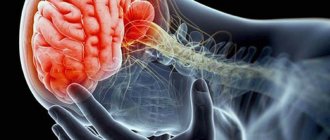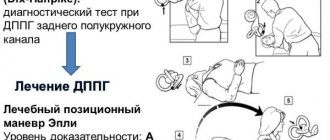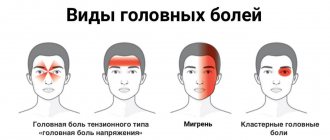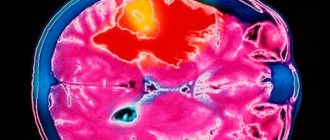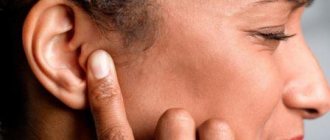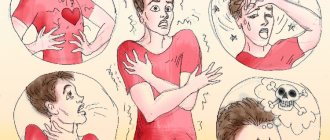Slight dizziness after an unexpected sudden change of position or spin on the dance floor is a normal reaction of the body. But when the world disappears from under your feet for no apparent reason, and dizziness occurs frequently, you need to seek help from a doctor. Symptoms such as loss of balance and dizziness occur for various reasons in one in four adults.
Symptoms such as dizziness and a feeling of loss of balance can be caused by the same things in most cases. It is also common to experience dizziness and nausea at the same time. If you rotate around your axis for a long time and then suddenly stop, you get the feeling as if the world is spinning in the opposite direction to return to its place. If you immediately try to move, it may result in a painful fall. Unfortunately, with health problems, and especially in mature and elderly people, dizziness and loss of balance sometimes occur simply when walking.
Balance problems and dizziness include:
- feeling as if everything is spinning;
- a feeling that the body is rotating in the opposite direction relative to surrounding objects;
- a feeling of rocking - it seems that the earth is floating under your feet;
- drifts to the side, as if “something” was pulled there.
Often, balance problems and dizziness are accompanied by other symptoms: nausea, vomiting, nystagmus (rapid eye vibrations), hearing loss and headaches.
Causes of balance problems and dizziness in older people
Very often, loss of balance is caused by diseases of the ear , because there is an organ that is responsible for it - the vestibular apparatus. The cause can also be poisoning, for example, aspirin, quinine, botulinum toxin (causes botulism), mushrooms, alcohol, etc. After detoxification, as a rule, everything returns to normal.
But in the case of older people, dizziness and impaired sense of balance are very often a consequence of brain hypoxia - there is an insufficient supply of oxygen due to impaired blood flow. The blame for this lies in atherosclerotic plaques that form on the walls of arteries with “bad” cholesterol, as well as degenerative changes in the cervical spine. This results in difficulty moving blood in the arteries supplying the brain. Adverse vascular changes may also appear if diabetes or hypertension . In addition, cerebral hypoxia can be a consequence of severe anemia. In such cases, the most effective way to alleviate dizziness and loss of balance is to treat cardiovascular problems and the causes that cause them. You should also take care to reduce blood cholesterol levels.
Elderly people often have damaged peripheral nerves, muscles, and joints as a result of various diseases. This can also cause imbalance, or more precisely a motor disorder, but is not accompanied by dizziness. These types of symptoms appear in people who have been treated with antiepileptic agents (found in anticonvulsants), sedatives (a type of anti-anxiety drug), or in the later stages of multiple sclerosis.
Loss of orientation in space: reasons
It is important to know the causes of disorientation in order to provide first aid in an emergency.
What could be the reason for the loss of disorientation in space? There are several of them:
- Alzheimer's disease;
- meningitis;
- renal failure;
- hypothyroidism; schizophrenia;
- hydrocephalus;
- epilepsy;
- Creutzfeldt-Jakob disease;
- manic-depressive disorders;
- encephalitis;
- hypoglycemia;
- brain tumors and cysts.
Note that the causes of disorientation can be not only this kind of illness, but also:
- altitude sickness;
- alcohol abuse;
- taking drugs or certain medications (tranquilizers, antiallergic drugs, painkillers, anti-inflammatory drugs, muscle relaxants);
- hypovitaminosis;
- dehydration;
- hypothermia;
- heatstroke;
- traumatic brain injury;
- infection;
- metabolic disorders;
- post-traumatic psychosis.
With improper nutrition, namely: insufficient intake of nutrients into the body, the brain begins to starve just like the body. Confusion and low blood sugar levels, and as a result, disorientation in space, are some of the consequences of improper diets.
In any case, and regardless of the reasons for the occurrence of such a condition, you should first contact a neurologist. Only a doctor, by conducting an examination and prescribing tests, can diagnose the true causes of disorientation in space.
Diagnosis of dizziness and loss of balance
There are many causes of dizziness and imbalance, so it is often difficult to quickly make an accurate diagnosis.
Sometimes it is necessary to undergo examination by many specialists, for example, an ENT specialist, an ophthalmologist and a neurologist. The very description of the problem to the doctor plays an important role. He usually asks about the frequency and intensity of dizziness, its duration, accompanying signs of imbalance, as well as past illnesses, injuries, medications for treatment, and even working or living conditions. Additional specific examinations may also be required, which are not performed in all Kalinin clinics:
- audiometry (hearing test) - the patient presses a button when he begins to hear sound through the headphones;
- provocative test - deliberate induction of nystagmus (involuntary eye movements) and dizziness, for example, by rotating in a special Barany chair, which is used to test the vestibular system, or using the Dix-Hallpike test;
- electro- and videonystagmography (ENG and FNG) - recording of involuntary eye movements (nystagmus), using electrodes that cling to the temples and record electrical potentials (as in an ECG), or using special glasses.
Radiological methods of studying the bones of the cervical spine and head - MRI, CT and so-called Doppler (determining the speed of blood flow using ultrasound) in the arteries supplying the brain can also help in determining the cause of imbalance.
Indications for an immediate visit to the doctor are:
- periodic or severe dizziness or headaches,
- speech disorders;
- blurred vision (“fog” before the eyes);
- hearing impairment;
- difficulty walking, frequent falls;
- weakness in the leg muscles;
- loss of consciousness;
- numbness or tingling sensation in the arms and legs.
Hearing diseases that may cause balance problems
If you experience frequent dizziness, then one of the first things you should do is visit an otolaryngologist (ENT), because such symptoms can accompany various diseases of the hearing chamber. Sometimes a simple test is enough to make a diagnosis and begin treatment that will get rid of these problems.
- Labyrinitis (inflammation of the inner ear, and it contains the vestibular apparatus). It is also called internal otitis. The exact causes of its occurrence are not known, but such inflammation can occur, for example, as a complication after the flu. This usually results in severe dizziness, nausea and vomiting that lasts for several days. The disease goes away after treatment with antibiotics, sometimes steroids, but when it is not caused by bacteria, it can go away on its own. In some cases, specialized rehabilitation is necessary - you need to learn to maintain balance with the help of exercises (head and body movements).
- Benign positional paroxysmal vertigo (D) is the movement of small “pebbles” that were formed due to damage to the otolithic membrane in the canals of the labyrinth, which causes its irritation, resulting in dizziness. For example, such dizziness occurs when hanging head down, quickly getting out of bed, or rolling from side to side. This state does not last long, but is intense - the head usually spins for several seconds, but it is often difficult to stand even on your feet.
This phenomenon is also sometimes called “otolithiasis”. It is one of the most common causes of dizziness (17%) and is more common in women. If you wake up in the morning or at night with a feeling of severe dizziness, then this is most likely BPPV.
This type of dizziness in older people is usually caused by the fragmentation of otoliths - small crystals that were previously located in the otolith membrane. Their loose pieces move when you move your head and irritate the labyrinths. In this case, if medications and attempts to avoid certain movements do not help, surgery may be necessary to remove the “garbage.” There are special exercises for treating this problem, aimed at “pumping” the otoliths.
- Damage to the eardrum. It can cause dizziness if, for example, cold air or water reaches the middle ear. In such a situation, before swimming in a pond or going out into the cold, inserting a tampon into your ear can help.
- Meniere's disease. For unknown reasons, excess fluid accumulates in the inner ear, which causes dizziness, nausea, tinnitus and hearing loss (with each attack, the person hears worse and worse). If diuretics, antihistamines, steroids and avoiding salt in the diet do not help, then surgery may be required (sometimes including removal of the labyrinth).
- Acoustic neuroma. A benign tumor, which, however, causes hearing loss, tinnitus, and disturbances in the sense of balance. In this case, treatment is only surgical.
Orthostatic collapse
This is fainting associated with a rapid change in position when standing. Collapse can be caused by prolonged standing, heat, or dehydration. Weakness in the morning, during pregnancy, in stressful situations, with excitement, and the sight of blood is typical.
Anemia
Anemia is a condition characterized by a low number of red blood cells or hemoglobin. A person with anemia often feels dizzy; a typical symptom is pale skin and cold extremities.
Hypoglycemia as a cause of dizziness and loss of coordination
Low glycemia is one of the acute complications of diabetes, which, at the same time, may be the only symptom of the disease. With hypoglycemia, a person experiences palpitations, sweating, tremors, and anxiety. Sudden hunger often appears. Other symptoms include:
- confusion;
- visual impairment;
- refusal of help;
- aggression.
Therefore, hypoglycemia is sometimes confused with intoxication. In this condition, the patient becomes dizzy and staggers when walking.
Treatment of dizziness and loss of balance
The treatment for balance disorders depends on the cause. Sometimes antiemetics and sedatives are sufficient. But such therapy only removes the symptoms, not the cause of the disorder.
In some cases, doctors prescribe anti-inflammatory drugs that improve metabolism in nerve cells. Sometimes surgical treatment is necessary. , motor rehabilitation is very important for balance disorders and dizziness . With proper training, many problems can be eliminated, because balance is not only a well-functioning labyrinth.
( 6 ratings, average: 4.33 out of 5)
Dizziness
One of the first and main symptoms accompanying disorientation in space. It can intensify with a sharp change in body position or turning the head. Internal causes include improper blood flow, the appearance of which is caused by an uncomfortable position when sitting or lying down. It can cause nausea, vomiting, darkening of the eyes, and pain in the forehead. In any case, this symptom should never be ignored: in addition to spatiotemporal disorientation, this can be caused by a number of neurological diseases. Especially if this happens regularly.
Prevention
Preventing vertigo and balance problems involves preventing the underlying disease that causes these symptoms:
- Many sports focus on exercises that improve balance (gymnastics, jumping, bosu).
- Stand on one leg when brushing your teeth.
- Try to walk in a straight line while walking.
- Don't stand up too quickly.
- Drink enough fluids, especially during the summer months, to help stabilize your blood pressure. Reduce the amount of alcohol you consume.
- Sleep at least 7 hours.
- Relieve stress with relaxation exercises.
- Monitor your blood pressure regularly.
- Read the instructions for use of the medications you use. Some of them list dizziness as a side effect.
Patients with vertigo are burdened by the consequences of this condition, which greatly affects their daily activities. They often fear the presence of a serious life-threatening illness. But if imbalance occurs, you should consult a doctor. Dizziness should not be underestimated; it can indeed be a sign of a serious illness, which, if detected early, can have a good prognosis.
What to do if you have a sudden attack of dizziness
If you feel very dizzy, what should you do? If we are talking about sudden dizziness with the presence of autonomic symptoms (vomiting, pallor), you should call an ambulance, because it may be a symptom of a serious illness (loss of blood supply to the brain stem, blockage of blood vessels in the brain, sudden stroke).
Sometimes severe dizziness occurs in women during menstruation. As a rule, it is associated with large blood loss or hormonal imbalance. In men, this condition may accompany more serious problems. In both cases, specialized help is needed!
Important! Vertigo is an alarming sign, a signal of disturbances in the body, especially if you feel dizzy all the time.
Treatment measures
Treatment depends on what disease is causing the symptom. It is important to address the root cause. While peripheral disorders are not fatal (although subjectively very unpleasant), the neurological causes of imbalance are more serious.
Medicines
For drug therapy, SSRIs (Sertraline, Citalopram) and, more recently, SNRIs (Venlafaxine) are recommended. Sometimes taking Clonazepam for a short time helps. Recently, in a controlled study, Milnacipran was proven to be more effective than Fluvoxamine.
Physiotherapy
When treating disorders that cause positional vertigo, the Semont maneuver is used. Benign paroxysmal positional vertigo (originating from the vestibular apparatus) appears a few seconds or minutes after assuming a supine position or changing position.
The prognosis is favorable (spontaneous remission).
Turn your head to the left 45°, from a sitting position in the middle of the bed (legs hanging), lie down (on both sides) as quickly as possible, holding your head while tilting.
ethnoscience
In addition to ammonia, you can use herbs for dizziness.
Ginger
Ginger belongs to the traditional medicinal plants used in oriental medicine. Ginger extracts have a calming effect on the body, promote digestion, relieve vertigo, nausea, and vomiting.
Liquorice
Liquorice helps cope with dizziness. In addition, it contains substances that increase blood pressure and eliminate stomach problems.
Tribulus creeping
If you feel dizzy, drink Tribulus terrestris tea. It has a beneficial effect on many health problems. The substances it contains reduce fat and cholesterol levels, improve blood circulation or stimulate gastric juices. In addition, the herb is useful for the visual organs, the disorder of which is one of the causes of dizziness.



